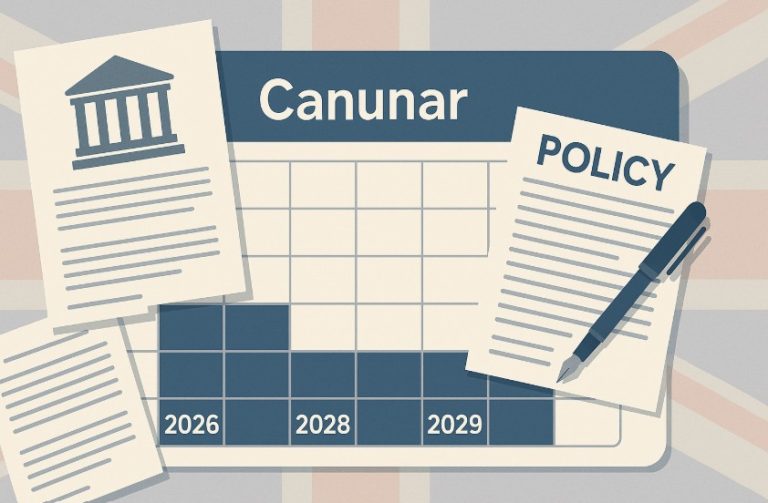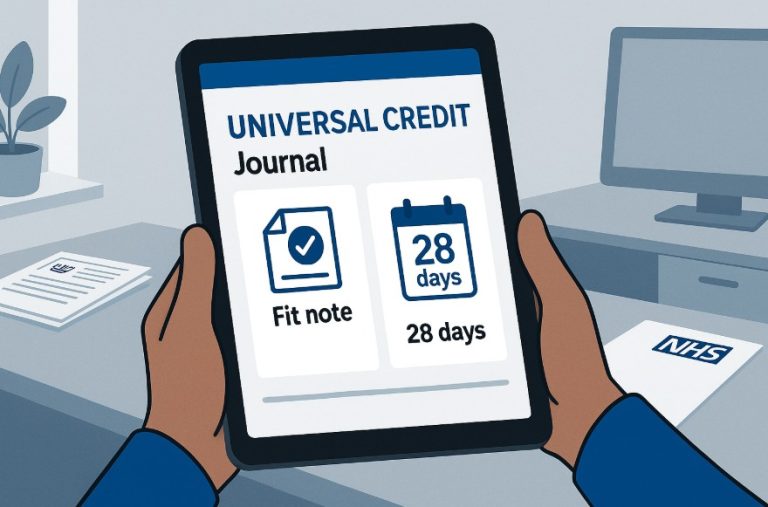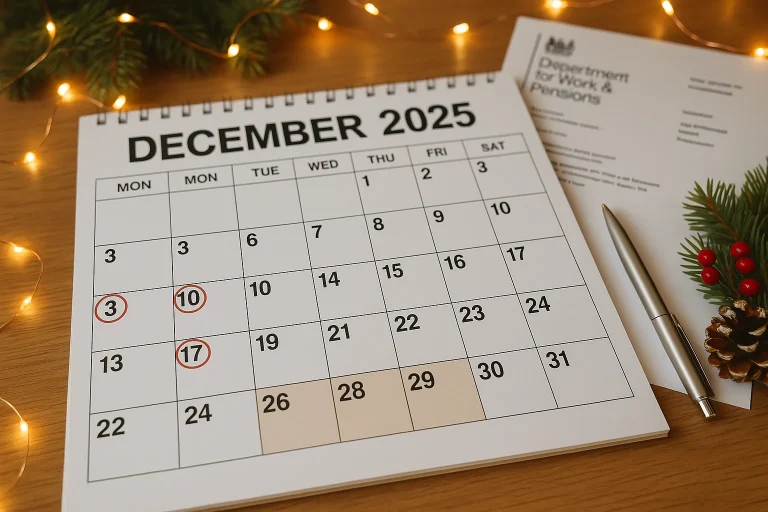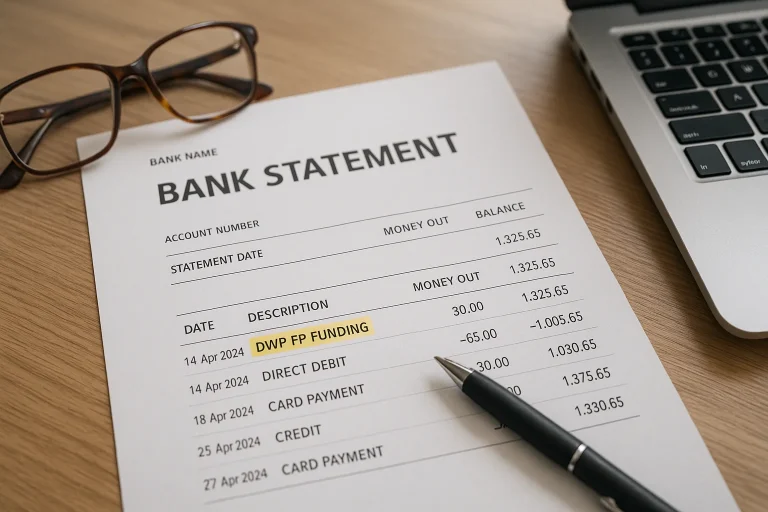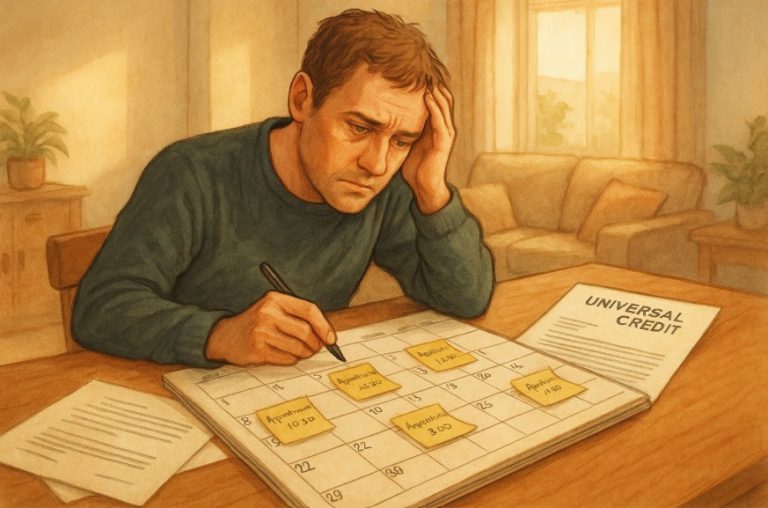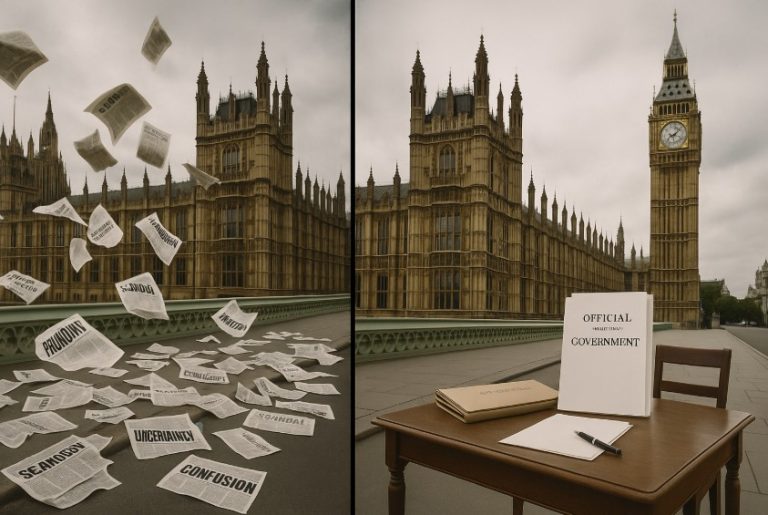The Department for Work and Pensions (DWP) provides a Freepost address for sending documents related to Universal Credit Full Service claims.
This option allows claimants to post required paperwork without paying for postage, making it a cost-effective way to provide evidence and information.
However, understanding the correct address, the rules for sending documents, and alternative delivery options is crucial to ensure your submission reaches the right place without delays.
What Is The Freepost DWP Universal Credit Full Service Address?
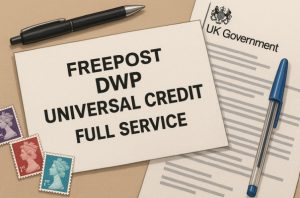
The Department for Work and Pensions provides a Freepost address that allows claimants to send documents without paying postage.
This is useful for those who may not have easy access to online document submission or prefer physical delivery. The correct address is:
FREEPOST DWP UNIVERSAL CREDIT FULL SERVICE
When writing this address on your envelope, it is essential to:
- Write it exactly as shown above, in capital letters.
- Avoid adding any postcode or additional address details.
- Place the word “FREEPOST” at the very top line.
Adding a postcode or extra information can cause misdirection or delays in delivery because the Freepost system works on a unique routing method.
How Do You Send Documents To Universal Credit Using Freepost?
Sending documents to the Department for Work and Pensions through the Freepost system is a straightforward process, but attention to detail is essential to avoid delays or misplacement.
This method is particularly useful for claimants who do not wish to pay postage costs or who are sending routine evidence that does not require tracking.
Step-By-Step Guide to Using Freepost
1. Prepare Your Documents Carefully
Before sending anything, make sure all pages are complete and legible. If you are sending copies, ensure they are clear and not blurred or faint. Avoid sending damaged or torn documents, as these can cause scanning issues at the DWP processing centre.
2. Add Your Claimant Information
On every single page, clearly write:
-
- Your full name
- Your date of birth
- Your National Insurance number
This is vital because documents are processed in high volumes, and missing identifiers can lead to delays or even the documents being discarded if they cannot be matched to a claim.
3. Use the Correct Freepost Address
Write the address exactly as:
FREEPOST DWP UNIVERSAL CREDIT FULL SERVICE
-
- All letters should be in capitals.
- Do not add a postcode.
- Do not include any extra lines or details, as this can disrupt the Freepost sorting system.
4. Choose a Suitable Envelope
Use a strong, good-quality envelope to protect your paperwork during transit. Thin or flimsy envelopes can tear, potentially causing important evidence to go missing.
5. Secure the Contents
Place all documents flat and avoid overstuffing the envelope. If you are sending multiple sheets, keep them in a single stack without staples or paperclips, as these can delay scanning.
6. Post at a Royal Mail Postbox or Post Office
You can drop the envelope into any public postbox, but using a Post Office counter allows you to request a free proof of posting. This small receipt confirms you have handed the item to Royal Mail, although it does not offer tracking.
Recommended Document Types for Freepost Submission
While the Freepost system can be used for most Universal Credit evidence requests, it is best suited for documents that do not require special handling. Examples include:
- Photocopies of ID documents such as driving licences or utility bills
- Employment payslips
- Bank statements
- Housing or tenancy agreements
- Letters from employers or support organisations
- Evidence of childcare costs
Important Points to Remember When Using Freepost
- Always check your Universal Credit journal or letter from the DWP to confirm whether the documents can be sent by Freepost.
- Keep personal copies of everything you send for your own records.
- Avoid sending high-value original documents via Freepost opt for recorded or special delivery instead.
- Post your envelope as soon as possible after a request to avoid missing deadlines that could affect your payments.
Can You Use Recorded Or Signed Delivery For Universal Credit?
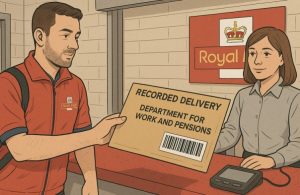
In addition to Freepost, claimants can send documents using recorded or signed delivery. This method is recommended when sending original or sensitive items because it allows tracking and proof of delivery.
The full postal address for recorded or signed delivery is:
UCFS Post
Canterbury BC
Nutwood House
Chaucer Road
Canterbury
Kent
CT1 1ZZ
Using recorded delivery ensures your documents are traceable and gives you a delivery confirmation, which can be essential in disputes about whether evidence was received on time.
What Are The Key Differences Between Freepost And Recorded Delivery?
When sending documents to the Department for Work and Pensions (DWP) for Universal Credit, claimants generally have two main postal options the Freepost system and recorded delivery.
While both are valid ways to send paperwork, each method has distinct benefits and limitations. Choosing the right one depends on the type of documents, the level of security required, and the urgency of the submission.
1. Cost and Accessibility
Freepost is entirely free of charge, making it the most cost-effective option, especially for claimants who need to send multiple documents throughout the year. Recorded delivery, on the other hand, requires payment, with prices depending on the weight, size, and delivery speed.
2. Proof and Tracking
The most significant difference is tracking. Freepost does not provide any tracking or confirmation that your documents have been delivered, whereas recorded delivery offers a unique tracking number and an online record showing when the envelope was delivered and signed for.
3. Security Level
Freepost is suitable for routine submissions, such as photocopies of documents, where the risk of loss is minimal and the information is not highly sensitive.
Recorded delivery is recommended for original documents or confidential information because it provides a chain of custody and delivery confirmation.
4. Delivery Speed
Both Freepost and recorded delivery use Royal Mail services, but recorded delivery offers priority handling and faster delivery times if you choose First Class or Special Delivery options. Freepost mail is handled as standard post and may take slightly longer.
Detailed Comparison Table:
| Feature | Freepost DWP Universal Credit Full Service | Recorded/Signed Delivery |
| Cost | Free | Paid (varies by weight) |
| Tracking | Not available | Full tracking provided |
| Proof of Delivery | Not available | Yes, with recipient signature |
| Security for Originals | Low | High |
| Delivery Speed | Standard Royal Mail | Faster options available |
| Best Use | Photocopies, routine evidence | Originals, sensitive items |
5. Risk and Responsibility
While Royal Mail handles both types of mail carefully, there is always a small risk of loss. With Freepost, it is harder to prove if something has gone missing after you post it. Recorded delivery shifts some of the responsibility onto Royal Mail because they are accountable for tracking and confirming the delivery.
6. When to Choose Each Option?
Use Freepost when sending routine documents that can be easily replaced, such as photocopies of utility bills or bank statements.
- Use Recorded Delivery when sending time-sensitive evidence, irreplaceable original documents, or anything that could affect your benefit payments if it were lost.
Practical Tip:
If you are close to a deadline and cannot risk delays, recorded delivery or even Royal Mail Special Delivery (guaranteed next day) is a safer choice.
How Can You Ensure Your Documents Are Processed Quickly By The DWP?
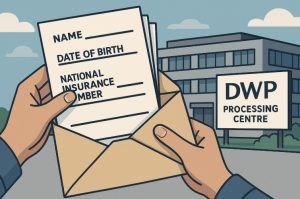
The speed of document processing can affect benefit decisions and payments. To avoid delays, claimants should follow best practices:
- Write your name, date of birth, and National Insurance number on every page.
- Send documents immediately after a request is made.
- Use legible photocopies rather than poor-quality scans.
- Place documents flat in the envelope to avoid creases that make scanning difficult.
Processing Considerations Table:
| Step | Purpose | Benefit To Claimant |
| Adding Claimant Information | Ensures correct matching with your claim | Prevents loss or misfiling |
| Prompt Posting | Avoids missed deadlines | Reduces payment disruption |
| Using Clear Copies | Improves scan quality for DWP systems | Speeds up verification |
| Keeping Copies | Provides personal record of submission | Supports dispute resolution |
Can You Send Original Documents To Universal Credit?
While it is possible to send original documents, it is not generally recommended because there is a small risk they could be lost in the post. If originals are essential, the following precautions should be taken:
- Use recorded or special delivery for added security.
- Inform the DWP before sending originals.
- Keep a photocopy for your own records.
Alternatively, you can take original documents to your local Jobcentre. Staff can photocopy and verify them on-site, returning the originals immediately to you.
Is It Possible To Submit Universal Credit Documents Online Instead Of Posting?

Universal Credit Full Service is designed to operate mainly online. Many documents can be uploaded directly to your Universal Credit account via the official government portal.
Advantages of online submission include:
- Instant delivery to the DWP
- No postage costs
- Digital proof of submission
- Reduced risk of loss
However, some items such as passports or certain certificates may still need to be shown in person or posted to the DWP.
FAQs About Sending Documents to Universal Credit
How long does it take for DWP to process posted documents?
Processing can take 7–14 days, depending on the volume of mail and the type of evidence submitted.
Can I hand-deliver documents instead of posting them?
Yes. You can hand documents to your local Jobcentre, which may speed up processing.
What happens if my documents get lost in the post?
Contact Universal Credit immediately. They may request resubmission and can make notes on your claim.
Can I send photographs of my documents instead of copies?
Photographs may be accepted online but are not recommended by post. Use clear, legible photocopies.
Does the DWP notify me when they receive my documents?
No automatic notification is given for Freepost items. Tracked delivery provides confirmation.
What is the safest method for sending valuable documents?
Special Delivery via Royal Mail offers the highest level of tracking and compensation for loss.
Are there deadlines for sending evidence to Universal Credit?
Yes. Deadlines vary depending on your request, but missing them can affect your claim.

